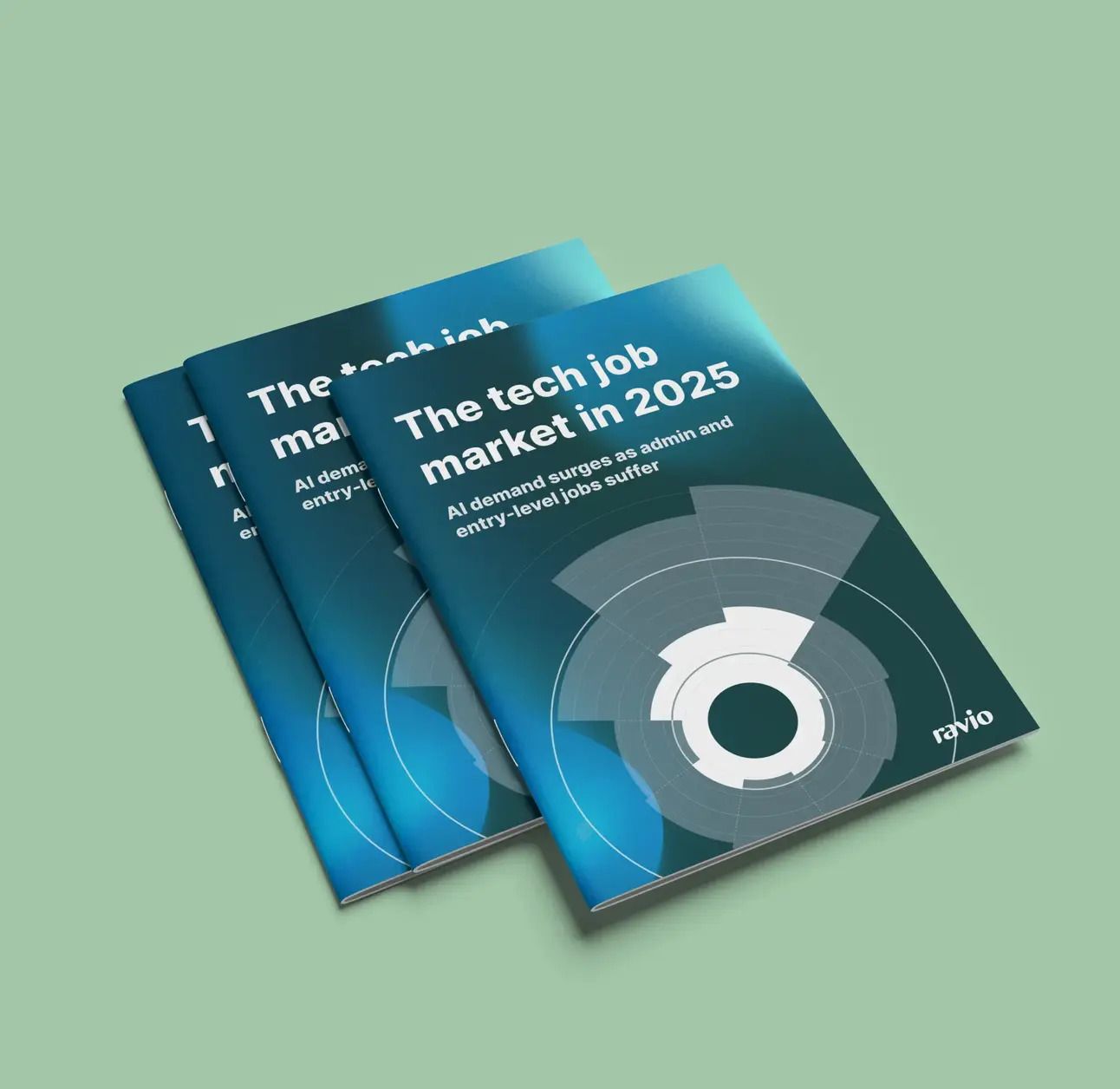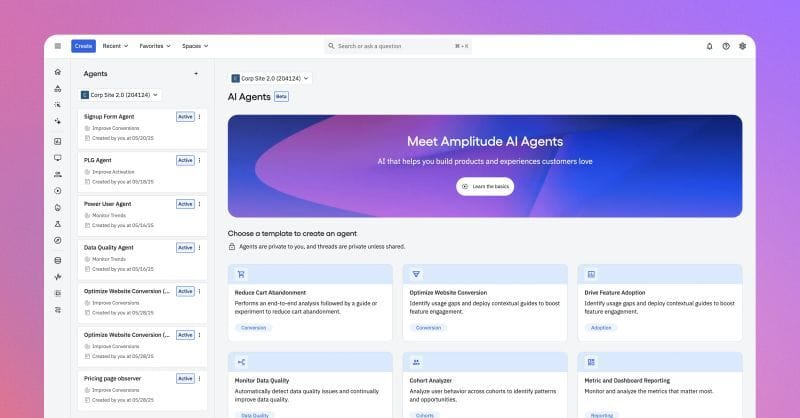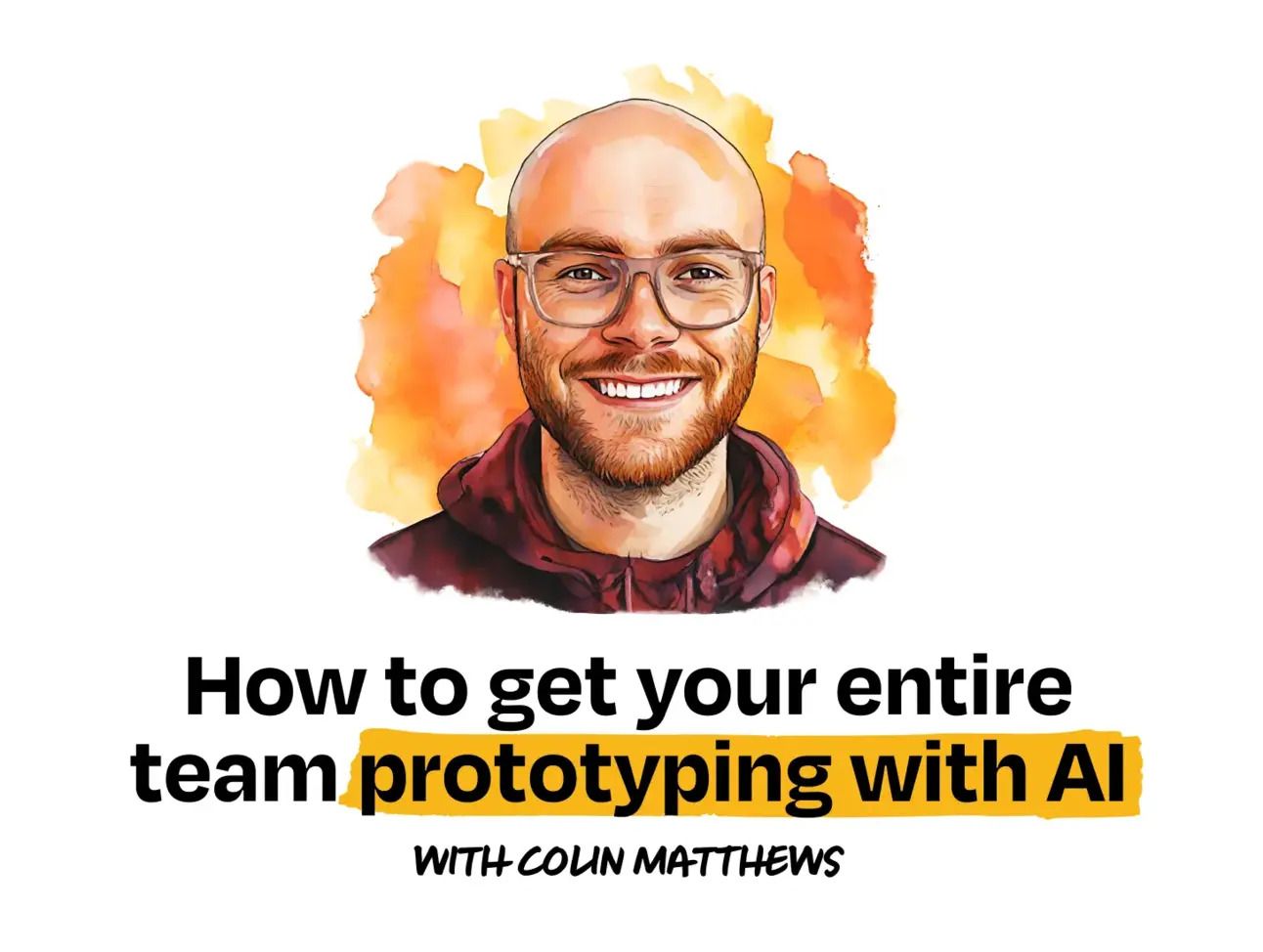- Ross Chapman
- Posts
- The Systems Are the Strategy - #9
The Systems Are the Strategy - #9
AI isn’t just changing how we build. It’s changing who builds, when we start, and what we expect from the process.
Something’s shifting.
We’re not just redesigning interfaces. We’re redesigning work itself.
AI is changing what roles look like, what skills matter, and how teams operate. And if you’re still hiring, prototyping, or planning like it’s 2022… you’re about to get left behind.
This issue is about what happens when you start from tasks and workflows instead of legacy job titles. When you build with AI agents instead of just reacting to data. And when you embed AI prototyping across teams instead of siloing innovation.
Inside:
🧩 Why breaking down roles into workflows is the secret to future-proofing your team
🤖 How Amplitude’s new AI Agents are shifting product teams from reactive to proactive
🛠️ The playbook for getting your whole team prototyping with AI and making it stick
The smartest teams aren’t waiting for permission. They’re moving early, fast and with intent.
Let’s get into it 👇
Note: My posting schedule has not been consistent, so I’m getting this out the door now and back to normal posting this Friday!
🔗 Signals this week
New data from Ravio shows entry-level roles down 73% and AI job titles up 578%. This is a systemic rewiring of how work happens.
The smartest orgs are redesigning roles task-first, not title-first.
My take:
Titles are lagging indicators. The real signal is in the tasks. What actually needs a human touch?
Tools aren’t replacing HR, they’re freeing it. Less admin, more strategy.
“Support roles” often hide high-agency operators. With the right scaffolding, they can lead the next wave.
The companies rethinking roles now are building retention, morale and resilience into their orgs, not just saving cost.
Is this the future of hiring? Not job descriptions, but skill clusters and automation awareness.
AI isn’t waiting. And neither should your workforce design.
Amplitude’s new AI Agents just launched and they could mark the end of manual data wrangling. Kate Syuma, formerly of Miro, explains how they flip growth work from reactive to proactive by auto-spotting drop-offs, suggesting experiments, and taking action in real time.
This is a shift in how product teams think, work and learn.
My take:
“Start with data” used to mean stop everything until someone pulled a dashboard. That friction is disappearing.
Amplitude’s AI Agents represent a real unlock, not for insights, but for action. That’s the bigger shift.
Product is becoming less about hunting signals and more about directing outcomes. AI handles the grunt; humans steer.
This is about removing the bottlenecks that slow teams down.
The opportunity now? Reorient your team around what’s next, not just what happened.
If you had an AI analyst shadowing your team, what’s the first decision you’d delegate?
Everyone’s prototyping with AI, but most teams are still doing it solo. Colin Matthews’ latest post (another Lenny top-performer) shows how to move from lone experiments to team-wide workflows.
With component libraries, baselines, forks and mid-fi fidelity, this is the playbook for turning prompt toys into shared tools for product thinking, faster feedback and better alignment.
My take:
This is the kind of operational shift most teams miss: AI tools are easy to try, hard to scale.
Colin’s “baselines and forks” concept is brilliant - reducing rework, raising quality and making ideas legible across a team.
We’re moving into a world where prototypes are collaboration accelerants.
Want to normalise better thinking in your product org? Make prototyping the default move, not the exception.
Also: teaching when and why to prototype matters just as much as teaching how.
💡 Build on this
“This redditor automated 73% of their remote job. Their reward? A promotion and a 15% raise.”
Let’s get one thing clear. This is a radical redefinition of what work is and how it adds value.
Automation as output, not threat
The redditor’s reward, a promotion and raise, is a powerful signal: automate well, and your job doesn’t disappear. It evolves. You’ve improved the system, not eliminated yourself.
Transparency beats secrecy
“Management was involved from the start.” That’s the playbook. No stealth bots. Automate with visibility, oversight and shared authority - that’s how you avoid suspicion and build trust.
Humans + bots, not humans vs bots
Time saved wasn’t idle time. It was reinvested into service. A built-in human check and peer training keeps the system from going rogue and keeps value compounding with care.
Incremental scaling = sustainable buy-in
Start small. Document well. Build trust. Then scale. This slow and steady runway approach ensures automation is a strategic lever.
Execution stack matters
Zapier, Calendly, Notion, Airtable, Google, Python, TextExpander… The tools are commoditised. The edge? How you weave them into a coherent system - with visibility and purpose.
This is the future of remote work. When automation is tied to performance, engagement and ROI, that’s the start of a new chapter in work.
What could you automate today transparently, responsibly, that makes you look twice as effective next month?
📬 From the feed
What do I do? I help founders and teams build smarter businesses faster. Take a look at previous work and what that could look like on my website.
📲 If you liked this and spend most of your time on LinkedIn, then consider giving me a follow @ross-chapman.
🔚 Until next week…
Found this useful? Please forward it to someone who you think would like to read it.
Want more like this every week? Subscribe here →


